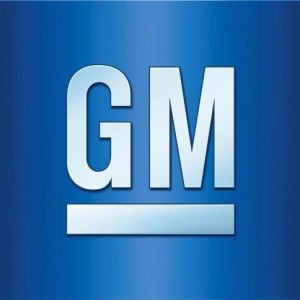 Top Class Action Lawsuits
Top Class Action Lawsuits
Is it Time to Clear the Air? Best Buy was hit with a consumer fraud class action this week, alleging it falsely advertised a line of Electrolux vacuum cleaners as having HEPA filters. Filed in Virginia federal court on behalf of lead plaintiff Christopher L. Early, the Best Buy lawsuit asserts that the Electrolux model EL4071A, which he purchased from a Glen Allen, VA., Best Buy in June, does not contain a certified HEPA filter as claimed by the advertising. Rather, the filters in these vacuums are described by Electrolux as an “allergen” filter. The lawsuit contends that Best Buy knew or should have known the vacuum filter did “not meet the standards of efficiency for a HEPA filter … and is a substantially inferior filtration system.”
Certified by the US Department of Energy, a high-efficiency particulate arrestance or HEPA filter is a type of air filter frequently used to help with asthma and indoor allergies. When used in a vacuum cleaner, the filter works to limit the amount of allergen and dust particles emitted into the air while it’s running, according to the complaint.
“Notwithstanding the material differences between a HEPA vacuum cleaner filter and a non-HEPA vacuum cleaner filter, Best Buy deliberately and willfully misrepresented in advertising and selling the Electrolux model EL4071A vacuum cleaner to consumers that such vacuums provided HEPA air filtration performance when, in fact, they did not,” the lawsuit states.
The advertising referred to in the complaint includes in-store signage, advertisements and online product descriptions and specifications for the vacuum. Specifically, the lawsuit states that the online description of the vacuum made numerous references to its HEPA filter. It was because of these claims that Early decided he would buy the vacuum “in reliance on the accuracy of the Best Buy online advertisement.”
The vacuum is described as a “HEPA bagless canister vacuum” on Best Buy’s website and sells for $199.99. According to the complaint, after buying the vacuum, Early reviewed the manual for information on the HEPA filter and could not find mention of a HEPA filter. So he called Electrolux and the manufacturer confirmed that in fact that model only has an allergen filter, not a HEPA certified filter.
The plaintiff is seeking class certification, damages and legal fees. He claims Best Buy is in breach of express and implied warranties, the Magnuson-Moss Warranty Act, the Virginia Consumer Protection Act and consumer protection laws of various states and is guilty of false advertising.
“Best Buy’s massive campaign to deceive U.S. consumers concerning the supposed health benefits of the Electrolux model EL4071A vacuum cleaner have caused harm to the plaintiff and the members of the proposed class and will continue to do so as long as Best Buy continues to make such representations and fails to notify its customers of its false representations,” the complaint states.
The case is Christopher L. Early v. Best Buy Co. Inc., case number 3:15-cv-00549, in the U.S. District Court for the Eastern District of Virginia.
Top Settlements
Actos Billion Dollar Settlement. A previously announced $2.4 billion settlement has been approved by enough plaintiffs in a mass tort against Takeda Pharmaceuticals, to enable the deal to proceed. The plaintiffs had filed Actos bladder cancer lawsuits, across the country, totaling over 8,000 product liability complaints. They alleged that Takeda withheld information about the side effects of its diabetes medication.
Actos (pioglitazone hydrochloride) is a member of a class of drugs known as thiazolidinediones, which have been linked to bladder cancer, liver disease and cardiovascular issues. Actos side effects include increased risk of congestive heart failure (CHF), increased risk of rare but serious liver problems, an increased risk of fractures, and an increased risk for bladder cancer. A black box warning exists for Actos and heart failure, however, an Actos whistleblower lawsuit suggests a previously known but downplayed link between Actos and myocardial infarction (Actos heart attack). Actos is used to treat type 2 diabetes. According to a company press release, 96% of all eligible claimaints have opted in to an Actos settlement program that was initially made public on April 28.
Under the terms of the agreement, the Actos settlement should provide an average award of about $296,000 per case, for plaintiffs diagnosed with bladder cancer. However, the individual awards may be reduced based on the user’s age, exposure to other cancer-causing toxins and smoking history. The amount is set to rise to $2.4 billion if 97% of all eligible claimants participate.
Guess They Just Couldn’t Deny it Any Longer….Acting in its own best interests, no doubt, General Motors (GM) has agreed to pay $900 million to bring closure to criminal charges brought against by the US government over allegations the automaker hid a handle lethal ignition switch defect, which has resulted in at least 124 deaths.
According to a report in Automotive News, GM admitted to failing to disclose the defect to both the National Highway Traffic Safety Administration (NHTSA) and the public. The defect prevents the deployment of airbags in some vehicles.
Additionally, GM has also admitted to misleading consumers about the safety of vehicles affected by the defect.
Under the terms of the three year agreement, GM must have its internal safety practices independently monitored as well as its ability to fix defects and recalls. If GM adheres to its obligations set out in the agreement, the criminal charges will be dropped.
Ok – That’s a wrap folks… See you at the Bar!



